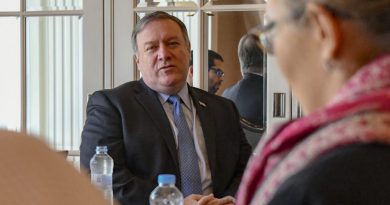Tensions Escalate: UN Sanctions Loom Over Iran’s Nuclear Program
Jules Greco
Staff Writer
On September 2, Britain, France, and Germany, collectively known as the E3, triggered a 30-day “snapback” process that could reimpose sweeping United Nations sanctions on Iran unless it swiftly resumes nuclear transparency and diplomacy, officials say.
The move marks the most serious escalation in years between Europe and Tehran over the future of Iran’s nuclear program. According to BBC News, the E3 warned three weeks ago that they were prepared to restore the sanctions unless Iran agreed to a “diplomatic solution” by the end of August. The E3 claims that Iran’s nuclear program poses a “clear threat to international peace and security” and that there is no civilian justification for stockpiling highly enriched uranium, violating the 2015 Joint Comprehensive Plan of Action (JCPoA).
Reuters reports that the E3 issued a joint statement to the U.N. Security Council on August 28, citing Iran’s failure to grant full International Atomic Energy Agency (IAEA) access, clarify uranium stockpiles, and engage in talks with the United States. The Guardian says if Iran meets these conditions within the window, sanctions may be delayed by up to six months.
According to the UK Government, the E3 made repeated diplomatic attempts before resorting to the snapback. This includes multiple negotiation rounds and compromise proposals after Iran violated agreements under the JCPoA and ignored IAEA requests. S&P Global says European diplomats stress the snapback is a diplomatic accelerator, not a departure from negotiations.
Yet, the Los Angeles Times details that Iranian Foreign Minister Abbas Araghchi has called the move “illegal, unjustified, and lacking any legal basis,” promising to “respond appropriately” if sanctions move forward. The Guardian notes that Iran admits to enriching uranium up to 60% purity, close to weapons-grade (90%), but insists it is not seeking a nuclear bomb. Reuters quotes Iran’s oil minister, Mohsen Paknejad, who claims Iran can bypass renewed sanctions, citing years of experience navigating restrictions.
On the diplomatic front, The Guardian reports that Iran’s Supreme Leader, Ayatollah Ali Khamenei has ruled out direct talks with Washington but left room for mediated talks via Oman or Norway. E3 officials have said they remain open to dialogue throughout the 30-day period.
Beyond nuclear negotiations, tensions rise as Germany has urged its citizens to leave Iran and avoid travel, citing threats of retaliation. Reuters reports that the German Embassy in Tehran now offers only limited support.
The Guardian says that the U.S. and other Western partners back the process as a necessary step to restore compliance under the 2015 nuclear agreement, while Russia has floated a proposal to delay sanctions for six months if Iran reengages. Russia and China cannot veto the snapback if triggered, but Russia’s proposal aims to delay it, and Moscow’s influence is notable since it will assume the UN Security Council presidency in September.
Moving forward, Iran must restore full IAEA access, account for uranium stockpiles, and rejoin diplomatic talks to avoid reimposition of sanctions. If Tehran cooperates, it could secure a temporary suspension of sanctions and potentially reopen negotiations with Europe and the U.S. If not, sanctions will likely snap back in force. The outcome may reshape nuclear diplomacy, oil markets, regional stability, and Iran’s international relations.
Image courtesy of Getty Images.

